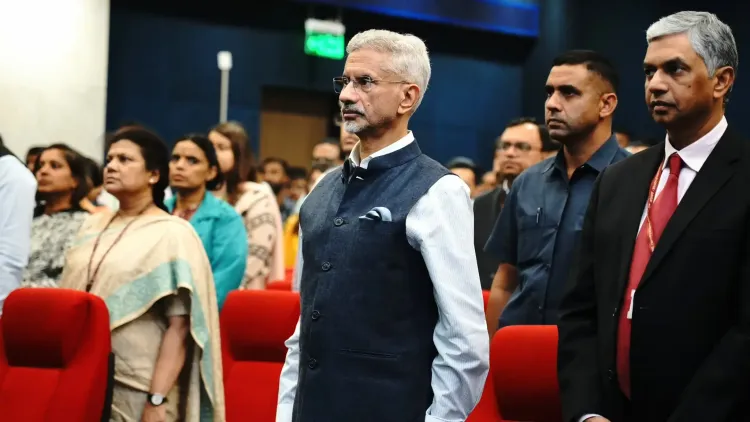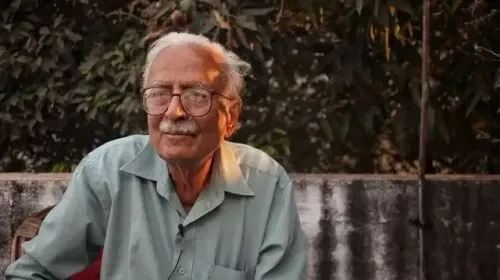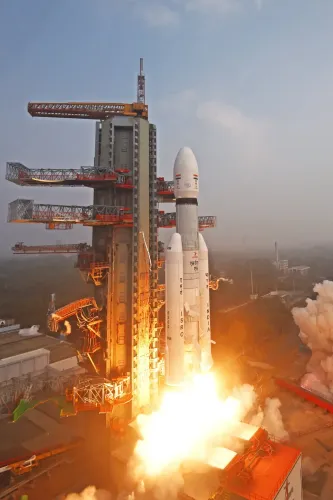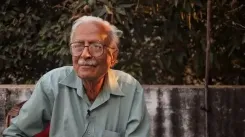What Does 'Vande Mataram' Represent for Our Nation?

Synopsis
Key Takeaways
- 'Vande Mataram' celebrates 150 years of national pride.
- It embodies determination, commitment, and hope.
- The song serves as an anthem for unity and identity.
- Written by Bankim Chandra Chatterjee in 1875.
- It remains a vital part of India's cultural legacy.
New Delhi, Nov 7 (NationPress) External Affairs Minister S. Jaishankar proclaimed on Friday that the Ministry of External Affairs (MEA) is marking the 150th anniversary of the national anthem 'Vande Mataram'. He emphasized that 'Vande Mataram' embodies the determination, commitment, and hope of a nation, galvanizing citizens to pursue a unified vision and shared future.
EAM Jaishankar, alongside Secretary (East) P. Kumaran, Secretary (South) Neena Malhotra, MEA's Secretary for Economic Relations, Sudhakar Dalela, MEA spokesperson Randhir Jaiswal, and other officials, gathered to honor the 150-year legacy of the national song.
“The MEA joins the nation in celebrating 150 years of 'Vande Mataram'. This song signifies our nation's determination, commitment, and hope. As Prime Minister Narendra Modi stated, 'Vande Mataram' is central to Bharat and will forever inspire us,” EAM Jaishankar posted on X.
On the same day, Prime Minister Narendra Modi inaugurated a year-long celebration of 150 years of the national song at the Indira Gandhi Indoor Stadium, asserting that during the period of oppression, 'Vande Mataram' became the anthem of India’s revival.
During his address, PM Modi remarked, “From the timeless journey of humanity, we have evolved and refined our values and ideals. Our ancestors, sages, and divine spirits bestowed us with a unique cultural identity.”
PM Modi added, “In the period of subjugation, 'Vande Mataram' emerged as the voice of India’s awakening — a proclamation that the shackles binding Maa Bharati would be shattered by her own children, who would become the architects of their fate. 'Vande Mataram' has always remained pertinent, achieving an everlasting status. The opening line, ‘Sujalam suphalam, malayaja shitalam, shasyashyamalam, Mataram!’ expresses our reverence for a land rich in beauty and abundance. This represents the millennia-old identity of India. This land has consistently demonstrated the ability to yield riches.”
“In 1875, Bankim Chandra Chatterjee introduced 'Vande Mataram' in 'Bangadarshan'; initially regarded by some as just a song, it gradually evolved into the collective cry of India’s awakening, resonating with the revolutionary spirit and emotions of every Indian,” PM Modi stated.
He further remarked, “Even in the most challenging situations — suffering, destruction, and despair surrounding us — Bankim Babu envisioned a flourishing India. He fervently believed that no matter how tough the circumstances, India could restore its golden past. That’s why he called out 'Vande Mataram'.”
As per a statement from the Prime Minister’s Office (PMO), the year 2025 will mark 150 years of 'Vande Mataram'.
This national song, penned by Bankim Chandra Chatterjee during the auspicious occasion of Akshaya Navami on November 7, 1875, first appeared in the literary journal 'Bangadarshan' as part of his novel 'Anandamath'.
The song venerates the motherland as the embodiment of strength, prosperity, and divinity, poetically expressing India’s essence of unity and self-respect. Over the years, it has become an enduring emblem of love for the nation.










